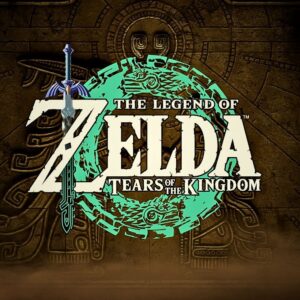Targeted Triumph: Why Dragon’s Dogma 2, Space Marine 2, and Helldivers 2 Prove Niche is the New AAA
Popular Now
 Gacha Club
Gacha Club
 Counter-Strike 2
Counter-Strike 2
 Genshin Impact
Genshin Impact
 Grand Theft Auto V
Grand Theft Auto V
 Garena Free Fire: Kalahari
Garena Free Fire: Kalahari
 The Legend of Zelda
The Legend of Zelda
 CarX Street
CarX Street
 PUBG Mobile
PUBG Mobile
 Warframe
Warframe
 Call of Duty
Call of Duty  In a saturated market dominated by open-world epics and live-service behemoths, a new trend is emerging: games that unapologetically cater to a specific, passionate audience. Titles like Dragon’s Dogma 2, Warhammer 40,000: Space Marine 2, and Helldivers 2 have broken through the noise by embracing a core philosophy that a game doesn’t have to be for everyone to be a massive success. This approach stands in stark contrast to the traditional AAA model, where a “one size fits all” mentality often leads to homogenized, risk-averse experiences. As one developer from Capcom’s Dragon’s Dogma 2 team put it, “It’s normal if some people outside that target audience don’t like the game.” This sentiment encapsulates a paradigm shift in game design and marketing, proving that focusing on a dedicated fanbase can lead to critical acclaim and commercial triumph.
In a saturated market dominated by open-world epics and live-service behemoths, a new trend is emerging: games that unapologetically cater to a specific, passionate audience. Titles like Dragon’s Dogma 2, Warhammer 40,000: Space Marine 2, and Helldivers 2 have broken through the noise by embracing a core philosophy that a game doesn’t have to be for everyone to be a massive success. This approach stands in stark contrast to the traditional AAA model, where a “one size fits all” mentality often leads to homogenized, risk-averse experiences. As one developer from Capcom’s Dragon’s Dogma 2 team put it, “It’s normal if some people outside that target audience don’t like the game.” This sentiment encapsulates a paradigm shift in game design and marketing, proving that focusing on a dedicated fanbase can lead to critical acclaim and commercial triumph.
Each of these titles represents a distinct, focused vision. Helldivers 2, for instance, foregoes a traditional single-player campaign in favor of a frenetic, co-op-only experience. Its chaotic, emergent gameplay and deep meta-narrative have captivated millions of players who value teamwork and a shared objective. The game’s success is not about providing a little bit of everything, but about perfecting one thing: the joy of fighting for Super Earth with a squad of friends. This targeted approach has fostered a fiercely loyal community that has driven the game’s commercial success, with word-of-mouth and a viral social media presence serving as its most effective marketing tools.
The Art of Focused Design: A Deep Dive into Niche Appeal
The success of these games lies in their commitment to their core identity. They are not chasing trends or trying to appeal to the broadest possible demographic. Instead, they double down on what makes them unique, even if it alienates some players. This can be seen in several key design choices:
- Dragon’s Dogma 2 and the Uncompromising Experience: Capcom’s latest RPG is a masterclass in this philosophy. It deliberately avoids modern gaming conventions, such as fast travel, and embraces a sense of discovery and difficulty. The game’s design, which emphasizes player-driven exploration and emergent moments, is a direct call-back to a more old-school style of RPG. While some casual players may find its systems frustrating, the game’s target audience of hardcore RPG fans has praised it for its courage and unique identity.
- Warhammer 40,000: Space Marine 2 and the Power Fantasy: The sequel to the cult classic Space Marine is not a grand strategy game or a complex RPG. It’s a pure, unadulterated third-person shooter that perfectly captures the grimdark power fantasy of the Warhammer 40,000 universe. By focusing on satisfying, visceral combat against overwhelming hordes of Tyranids, the game delivers exactly what its fanbase wants. It’s a game that knows its audience and delivers on a specific promise, without trying to be something it’s not.
- Helldivers 2 and the Cooperative Grind: Arrowhead Game Studios’ title is a testament to the power of a single, well-executed gameplay loop. The game’s meta-game, which involves players fighting for planetary control, creates a sense of collective purpose that is highly engaging. Its success is not measured by its graphics or a sprawling narrative, but by the emergent stories and memorable moments that arise from its cooperative chaos.
These games are a testament to the idea that authenticity and a strong, focused vision can be more valuable than a massive budget and a scattershot appeal. They represent a healthy counter-movement to the live-service trend that has led to a number of high-profile flops and layoffs. Instead of trying to please everyone and ultimately satisfying no one, these developers have chosen to create games for someone, and in doing so, have found a more sustainable and creatively fulfilling path to success.
 A New Blueprint for AAA Development
A New Blueprint for AAA Development
The success of these titles offers a new blueprint for AAA development. Instead of aiming for universal appeal, developers can and should be empowered to create games that are designed for a specific audience. This approach not only fosters creativity but also creates a more loyal and engaged player base. As the gaming landscape continues to evolve, the most successful games may no longer be the ones with the largest budgets and the widest appeal, but the ones with the most focused and passionate vision. The age of the targeted triumph is upon us, and it is a welcome change for both creators and consumers alike.











 A New Blueprint for AAA Development
A New Blueprint for AAA Development